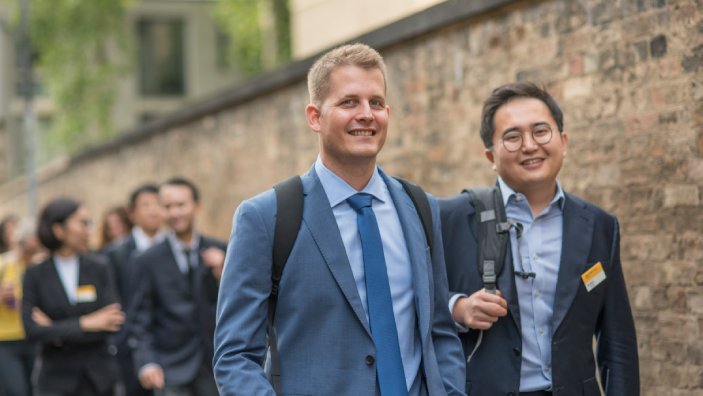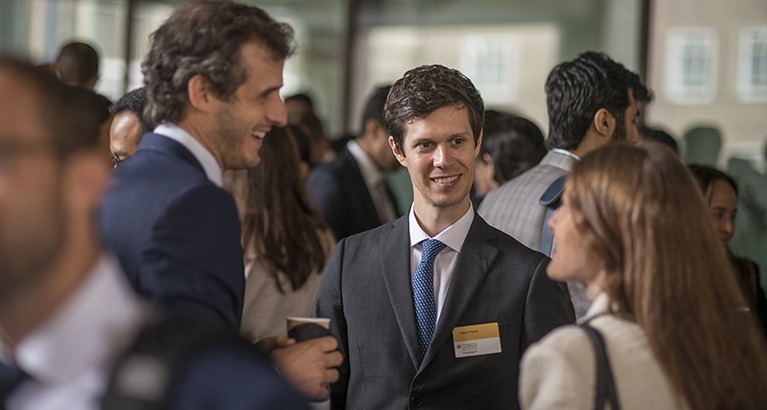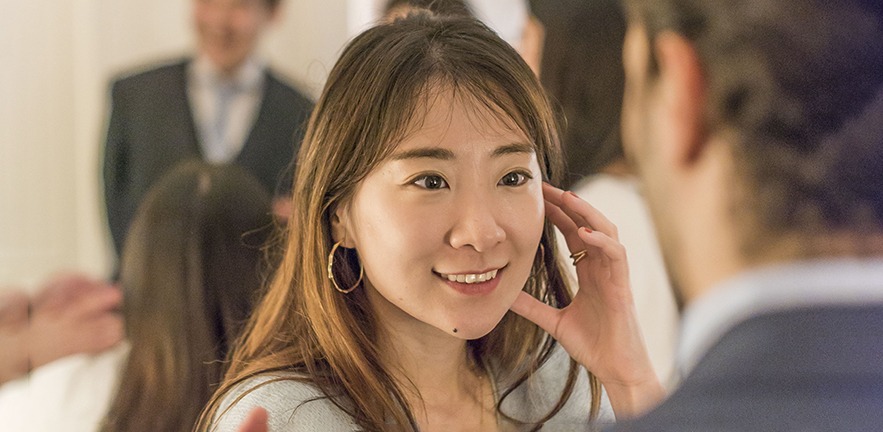Overview
The route from your MBA to a consulting role is a popular one – consulting firms hire MBAs from many different industry and function backgrounds.
Consultancy firms look for people who can thrive in being part of a high-performance team and understand the importance of team goals and objectives.
There are also some desirable skills and traits that all consultancy firms look for, and this is how we advise Cambridge MBAs to present themselves as they network, apply and interview for their target consulting roles.
While it is a popular choice for many MBA students, recruiting experience at Cambridge has shown it’s a highly achievable target for people with a range of different backgrounds, with the right preparation and work, and with engagement with our Business School Career team and resources.

of recent graduates transitioned into consulting
Statistics shown are from the most recent Cambridge MBA employment report.
From the Cambridge MBA to a consulting career
As we publish the Cambridge MBA employment report 2024, we explore the career outcomes for some of our most recent graduates.
Career and personal development
Consulting careers – making the switch with an MBA
From Bain, BCG, and McKinsey, we meet the Cambridge Judge alumni making the switch into consulting and propelling their careers forward with an MBA.
Hear from Romit Kapoor
Romit Kapoor, from India but working in the Middle East, talks about the unique set of opportunities and features that applying to Cambridge Judge Business School offered him and his career. During his MBA year he found that the University of Cambridge, together with the Business School, offered a safe space to let your mind wander and explore all that you want to.
Hear from Nimal de Silva
Working as a Corporate Strategy Associate for ArcelorMittal, in the UK, Nimal de Silva pivoted his career from a strategy engineering role into Consulting, after his one-year MBA at Cambridge Judge Business School.
This year’s employment report
Our MBA employment report captures employment data for the Cambridge MBA class of 2023/24 – our most recently graduated class.
These results confirm the variety of options available to Cambridge MBAs after their studies, and also the established appeal of the versatile Cambridge Master of Business Administration (MBA) graduates to a wide range of international employers.
We have provided pre-employment data to illustrate the transformative career pathways our students often take.









